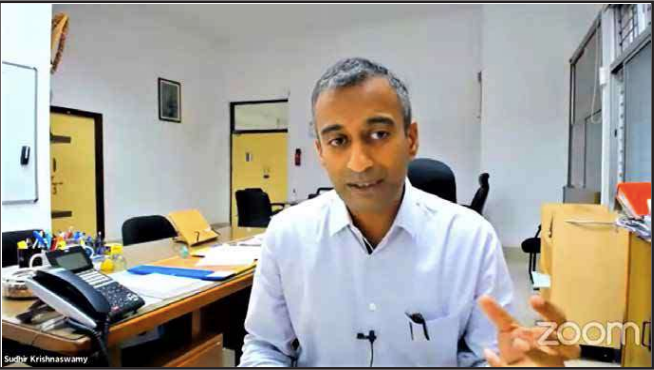Sudhir Krishnaswamy, VC, NLSIU, Bengaluru

About the report
I begin by congratulating the CSDS and the Common Cause teams for putting this report together. As others have said, this is an important report in that it speaks to some very narrow-focused questions. As someone who has read and worked with the other reports in 2018 and 2019, I would like to point out that while all of those interventions are valuable, this report is especially valuable. We have a debate about issues like fake encounters without really having any reasonable baseline about what we are discussing. As long as the report provides us with an empirical baseline, we are making progress. I think today’s discussion topic can be very emotionally charged and having strong empirical baselines help us ground these debates. I think this report is an important contribution in that sense. I wasn’t sure though that the report had a question on encounters.
We’ve been asked to address today as panellists the issue of encounter killings. Let me begin by talking about how we can frame this question: what do we call this kind of killing? I then want to talk about how we might approach this question constitutionally: what’s the normal case, what’s the exceptional case? I want to close off with making a broader point about distinguishing between two kinds of utilitarian thinking. There seems to be some profound philosophical mistake in which popular reaction to this kind of killing takes place.
I would also like to correct another idea. If you ask anyone in the North East about their bone of contention, everyone will say that the Armed Forces (Special Powers) Act (AFSPA) should go. It’s not nice to have a law like this in a democratic nation. And then you look at the state government. At the first hint of trouble, the state government asks for the armed forces to come in. They will also declare an area as disturbed very quickly so that they can enforce the AFSPA. So many extra judicial killings have taken place under this Act, particularly in Manipur. Those 1,528 documented cases of alleged fake encounters from Manipur are still pending as part of prolonged litigation, although December 2017 was supposed to be the deadline given by the
While we debate the national security advisory board, the recruitment process of the police force is itself questionable. So many people get in by paying money. If you are recruiting people in a corrupt manner into a force responsible for bringing justice to people, then how do you expect it to deliver justice. Investigation is always such a weak point in all the states of the North East. Looking for justice
So let me begin by the question of framing. All of us who have access to international cable TV have been witness to this remarkable trial of a police officer in Minneapolis in the US. The point of the trial is that it’s a
What we need to see is ordinary criminal accountability in police killing cases.
NEXT »



